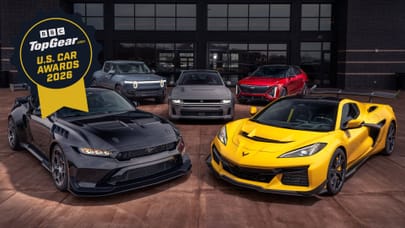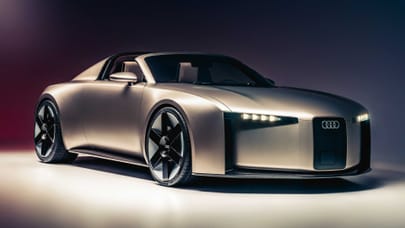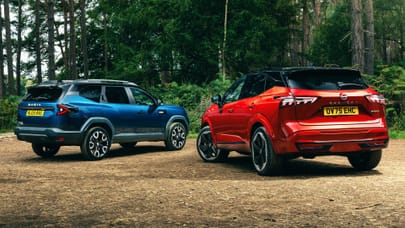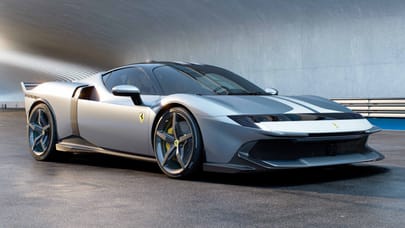
2017: It's been a bad year...
TG's Paul Horrell rounds up the losers from 2017's motoring world
After the VW emissions scandal, lots of VW drivers asked me whether they’d have to pay extra taxes. Or whether the recall would harm their cars’ performance or economy. Not one asked how much these diesel cars were poisoning children. But they are, and hastening the deaths of old people and anyone with asthma. Tens of thousands die early in Britain every year from NOx and particulates, stuff that comes mostly from old diesel vehicles. Because the drivers don’t seem to care, the politicians are steaming in. It’s been a bad year for diesels.
Sure, there were some dynamic new diesels, and most – but by no means all – of them were clean, even by independent on-road measurement. But the pressure’s on. In February, the Mayor of London, Sadiq Khan, said, “It is shocking that nearly half of new car sales in the UK are still diesel.” He was displaying the traditional politicians’ frail grasp of technical facts, because Euro 6 diesels aren’t the big problem. But he was making a wider and justified point about the need to detoxify the air in London.
And he’s acted. From 23 October this year, drivers of pre-Euro 4 cars, which is before 2005, now have to pay £10 a day to enter the existing Congestion Charge zone. In 2020, any pre-Euro 6 diesel car will be charged. That’s on top of the £11.50 congestion charge, by the way. Other cities will follow, but probably charge diesels only for certain congested routes.
Central government’s new air quality policy has kicked this job down to local council level. So far, no one really knows exactly what they’ll do. If that sounds like chaotic legislation, remember something must be done. Hang on. Isn’t the European Union supposed to legislate for safe and healthy cars? Well, it failed, so now the manufacturers and buyers face the bedlam of different rules in different cities.
Of course, that wasn’t the only way the European Union and its relationship with car manufacturers had a very bad year indeed. The continuing sclerosis on framing new trade rules with our Brexiting country threatens to derail decades of successful expansion of manufacturing here. The locally based makers, such as McLaren, are pretty sanguine. The manufacturers that are really up in arms about Brexit are those such as BMW-Mini and Nissan that bounce components back and forth across the Channel and stand to attract tariffs at every turn.
CEO Carlos Tavares said bright things about Vauxhall’s Ellesmere Port plant when PSA took over. But soon after, the new Peugeot-Citroen-DS-Vauxhall-Opel conglomerate specifically said it will stop investment in the factory until “it has enough visibility on the future trading relationship with the EU”. It also said the plant wasn’t competitive with its French factories. And that the Astra is losing sales ground to crossovers. So the plant lost a shift, shedding 400 workers. Vauxhall’s market share in the UK kept slipping too. Bad year for the Griffin.
Those pesky Astra-throttling small crossovers, eh? What sort of a year did they have, then? On the face of it, good, as they kept piling into the market: Crossland X, Q2, Arona, C3 Aircross, Stonic, Kona, T-Roc, ZS (that last one’s an MG if you hadn’t heard). All were new entrants, not replacements. Bigger crossovers have some practical use, but not this lot. The majority of the cursed things have almost nothing to commend them over their makers’ own hatches. Not except a bit of underbody clearance and higher seats that are easier for the elderly to climb into. So it has been a bad year for their sheep-like buyers. Collectively they represent fashion thumbing its nose at reason. Honourable exception – the likeable, comfy and handy Citroen.
GM in Detroit looked pretty lame by offloading its European arms, Vauxhall and Opel, to PSA. Right now, GM over there is doing OK by selling big trucks and SUVs, but if the oil price spikes, they’ll need good smaller vehicles. The ones that had up to now largely been engineered in the European outfits. Falling back on GM’s Korean operations might not do the job. Long term, no car company has ever succeeded without pitting itself against Europe’s best on European turf, and GM has just admitted it’s not up to that.
You might remember a carmaker called Fiat. At times it has been one of the most creative and vibrant brands of all. Not in 2017. Fiat released nothing more than a couple of mild facelifts. Basically, for the entire year it sat on its hands.
Poor Fernando Alonso had his hands tied. By the disastrous Honda engine, mostly. That’s the same Honda that makes the Civic Type R. Win some, lose some.
Top Gear
Newsletter
Thank you for subscribing to our newsletter. Look out for your regular round-up of news, reviews and offers in your inbox.
Get all the latest news, reviews and exclusives, direct to your inbox.
One of motorsport’s other great codes, the Le Mans series, will have to mark 2017 as a bad year, with the departure of Porsche following Audi’s 2016 exit. However awesome the cars, with Toyota as the only remaining top-tier competitor, it looks like they’re racing down a cul de sac.
Trending this week
- Car Review
BMW 1 Series
- Top Gear's Top 9
Nine dreadful bits of 'homeware' made by carmakers








